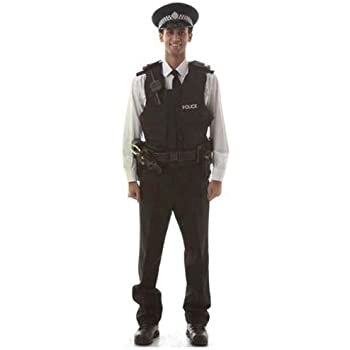Why our Behaviour Changes near Cardboard Policemen
How ‘hunches’ can save our life, how our unconscious mind trounces our conscious mind in assessing danger and sizing up dodgy characters, and why cardboard policemen work.
You are in a room which (unbeknown to you) is slowly filling with an odourless toxic gas, carbon monoxide. You become fidgety and anxious. Internal sensors in your bloodstream have registered rising levels of carbon monoxide and this is understood—somewhere somehow—as an imminent threat to survival despite you never having experienced this gas before. There’s no perceptible smell. Nonetheless, this threat to survival emotes movement. You have an urge to move; and by moving, you move away from the toxic gas and thereby survive. Meanwhile, you remain oblivious to the life-or-death drama unfolding beneath your personal awareness. There is an unconscious intelligence trying to keep us alive about which we know very little.
Although an instigator of urges and communications in metaphor, our unconscious also includes proper thinking, using language and the mathematical processing of numbers. Most of our thoughts, decisions, goals, deductions, reasoning, analysis, ideation, and feelings we are unaware of, are consequently unconscious. In fact, all we know about the existence of an unconscious is that it shows its influence under experimental conditions when it is clear we have made a decision before ‘we’ are aware of making it; or we move before ‘we’ have decided to move or we show that we know the answer to a question ‘we’ didn’t even understand.
Because our unconscious helps us survive, it is often referred to as the adaptive unconscious. It makes rapid survival decisions that would take too long to process consciously and is extremely effective at rapidly assessing other people. We don’t always have time to think through potential problems, so we need to size people up quickly. The unconscious mind can process 200,000 times more data than our conscious thinking which makes it incredibly fast. This enables us to make character assessments of others from facial appearance in a flash of 100ms. Most of the time, we remain unaware of these assessments as we are only informed on a need-to-know basis.
Although referred to as the unconscious, ironically, this aspect of our mind is aware of far more than 'we' are. Scanning our surroundings, our unconscious looks for the slightest hint of danger and adjusts our behaviour accordingly without us knowing. The subliminal glimpse of a cardboard policeman standing outside a shop reduces shoplifting significantly. Why? It isn’t because anyone decided not to shop-lift because of a piece of cardboard but because their unconscious ‘noted’ they were being watched and adjusted their behaviour accordingly. These ancient danger signals are so hardwired that they do not need to be real; just a drawing of a pair of eyes is sufficient to influence behaviour as if being watched.
Our unconscious never sleeps; it is continuously aware of what is going on outside and inside our bodies while we sleep and is therefore not even remotely unconscious. The information it processes is simply not in our tiny personal awareness. Even though most of our ‘thinking’ is unconscious, it still informs the decisions and assessments we make consciously.
We also unconsciously process health threats in others.
Retired nurse, Joy Milne, had been married twenty years when she found herself becoming agitated by her husband's odour. He had developed a new musky smell which, for reasons she could not explain, made her feel uncomfortable and agitated. After ten years of nagging her doctor about it, tests finally revealed that her husband had early-onset Parkinson’s disease. A few years later, when attending a Parkinson’s UK support group with her husband, she immediately recognised the same smell from other sufferers in the group.
She has since helped researchers at the University of Manchester develop a non-invasive test which can detect Parkinson's disease BEFORE diagnostic symptoms show up. They have built a machine to copy her ability to sniff out volatile biomarkers in sweat samples from potential sufferers. Her somatic intelligence understood that the smell indicated something was wrong, but she had no personal awareness or cognitive understanding of what that might be.
Evidently, we are capable of understanding loads of useful information about ourselves and others without being aware of having such an understanding. Urges and hunches may feel insubstantial, but this massive unconscious processor evolved to keep you safe.
Cardboard policemen reduce crime
This blog is an extract from my online course SOMATIC EMPATHY EXPLAINED
https://wildhealthbodywork.thinkific.com/courses/somatic-empathy-explained
